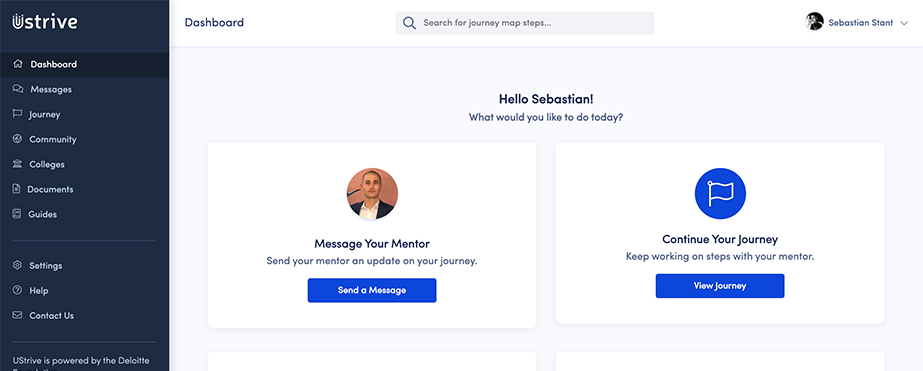Goal
Seek Support
Learn when and how to seek support.
You are not alone. Many people care about you and want you to find the support you need. From your friends and family to your mentor, you can find a system of people willing to help you! Your family and friends can be the greatest allies in your path to healing.
type: embedded-entry-inline id: 5gzWbkRebnYPeO61SvL9O5
Click here to learn how you can approach and discuss finding support systems in other people.
Look to your mentor
Your mentor wants to see you succeed, no matter what! By checking in with them often and letting them know how you’re doing, you can build a relationship that allows you to feel comfortable expressing your emotional needs. If you’re struggling with something, communicate that to them and if you need help finding resources or a solution to something, they will work with you.
Even if you feel as if you are alone, needing support is human nature. There are plenty of resources that can connect you to people who want to help you!
When to seek professional help?
Seek professional help if you are experiencing severe or distressing symptoms that have lasted two weeks or more, such as:
Difficulty sleeping
Appetite changes that result in unwanted weight changes
Struggling to get out of bed in the morning because of mood
Difficulty concentrating
Loss of interest in things you usually find enjoyable
Inability to perform usual daily functions and responsibilities
Don’t wait until your symptoms are overwhelming. If accessible, talk about your concerns with your primary care provider, who can refer you to a mental health specialist if needed. If you don’t know where to start, read the National Institute of Mental Health (NIMH) Tips for Talking With Your Health Care Provider fact sheet.
Want to learn more?
A mentor can help with this topic & many more. Join thousands of students & pick a mentor today!
It's 100% free, forever.

© UStrive 2022, All Rights Reserved


